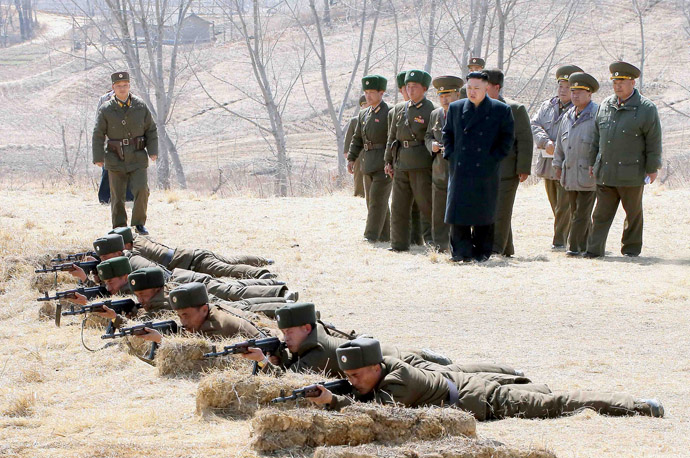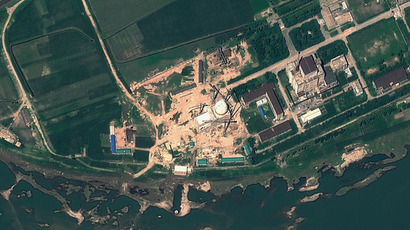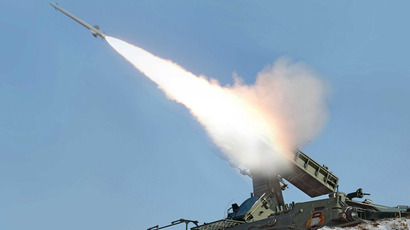N.Korea 'can't protect foreign embassies after April 10', Russia 'not evacuating'
North Korea asked foreign embassies to consider evacuation amid growing tension, warning it will be ‘unable to guarantee’ their safety after April 10. Moscow says it is examining the request, but is not planning to evacuate diplomats anytime soon.
The Foreign Ministry of North Korea on Friday has “proposed that the Russian side consider the issue of evacuating the embassy staff in connection with the increasingly tense situation on the Korean Peninsula,” the spokesman of the Russian Embassy to the DPRK Denis Samsonov told RT.
The Russian side “is examining the suggestion,” but the
embassy is working normally and there’s no sign of tension in
Pyongyang, Samsonov said.
The notification was sent to all foreign embassies and
diplomatic missions in Pyongyang, and, according to Xinhua news
agency, explained the deteriorating situation by “the increasing
threat from the United States.”
“The current question was not whether, but when a war would
break out on the peninsula,” Xinhua cited the North Korean
document.
The British Embassy in Pyongyang has received a communication saying that the North Korean government “would be unable to guarantee the safety of embassies and international organizations in the country in the event of conflict from April 10,” according to a UK Foreign Office spokesman.
Russia’s Foreign Minister Sergey Lavrov said Russia was in “close contact” with the United States, China, South Korea and Japan in connection with the unexpected announcement, which came shortly after Pyongyang threatened to launch a nuclear attack on the US.

Russia is “very concerned about increasing tension in the region,” although it is still “in verbal form,” Lavrov told RT. Moscow is now trying to shed the light on the motives behind the North Korean proposal.
The Russian Foreign Ministry on Friday called for all sides to refrain from “war hysteria,” and stressed there’s “no alternative other than political and diplomatic solution” for the Korean crisis.
Diplomats are set to meet Saturday in Pyongyang to discuss North
Korea’s proposal and possibly work out a joint plan. So far none of
the foreign missions, including the UN staffers, are reported to be
preparing to evacuate.
Meanwhile, in Cuba, Fidel Castro said the situation in the Korean peninsula is “unbelievable and absurd” in an article published on Friday, also calling it the most serious risk of a nuclear war since the 1962 Cuban Missile Crisis.
Should a war break out, it would affect more than 70 per cent of the planet’s population, Castro noted. The people on both sides on the peninsula would suffer “terrible loss without any gains whatsoever” and the US President Barack Obama’s second term “would be buried in a deluge of images that would portray him as the most sinister personality in the history of the United States,” the former Cuban president stressed.
South Korean media said that North Korea moved another medium-range missile to its east coast on Friday. Earlier this week, the US announced it was strengthening missile defense system to its base on the Pacific Ocean island of Guam in response to the North Korean missile deployment.
Nevertheless, the South Korean Defense Minister Kim Kwan-jin called the possibility of a full-scale provocation from Pyongyang “small” and the threats “rhetorical.”














